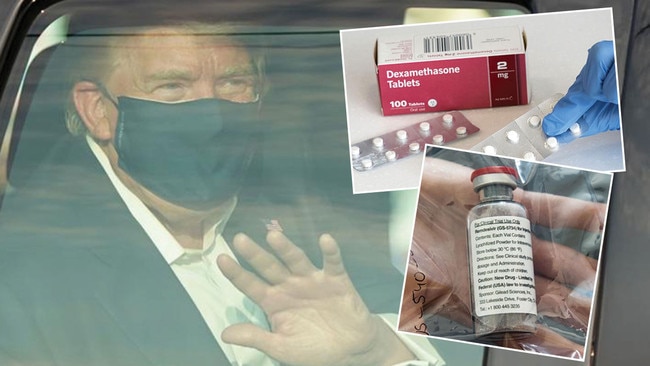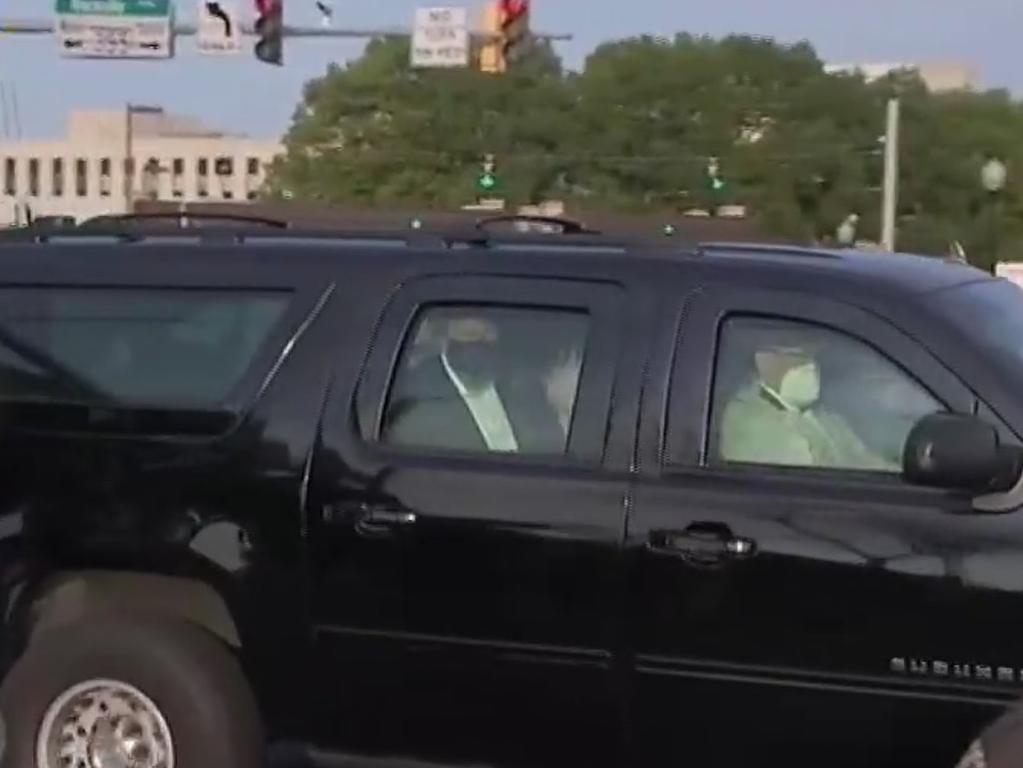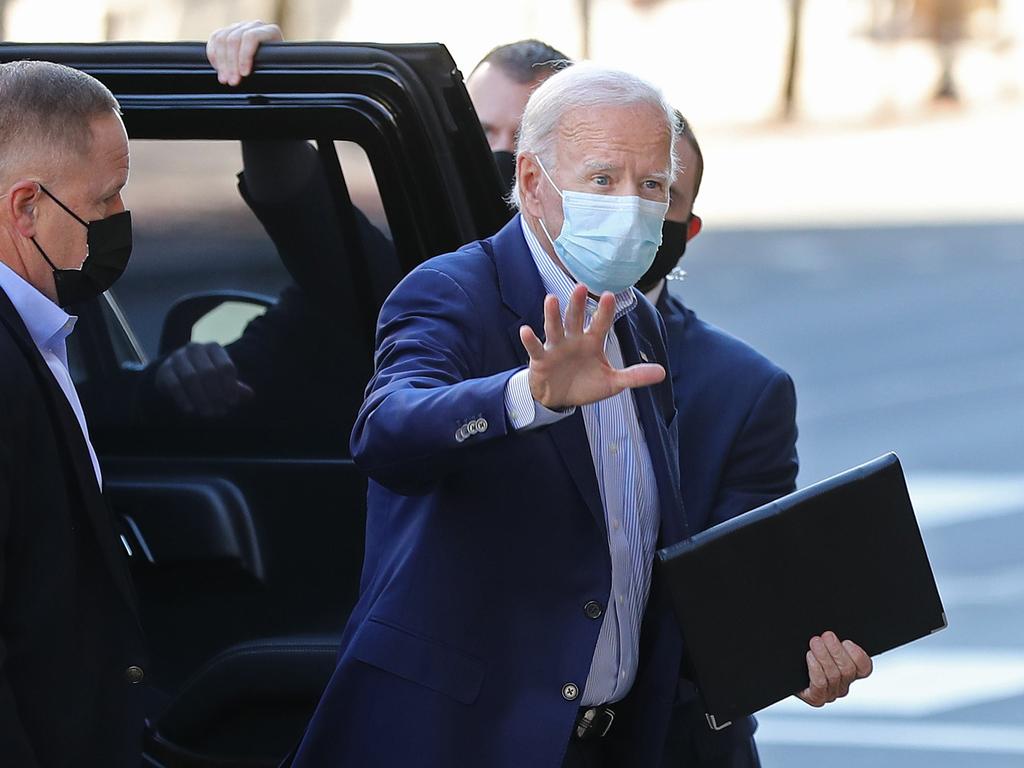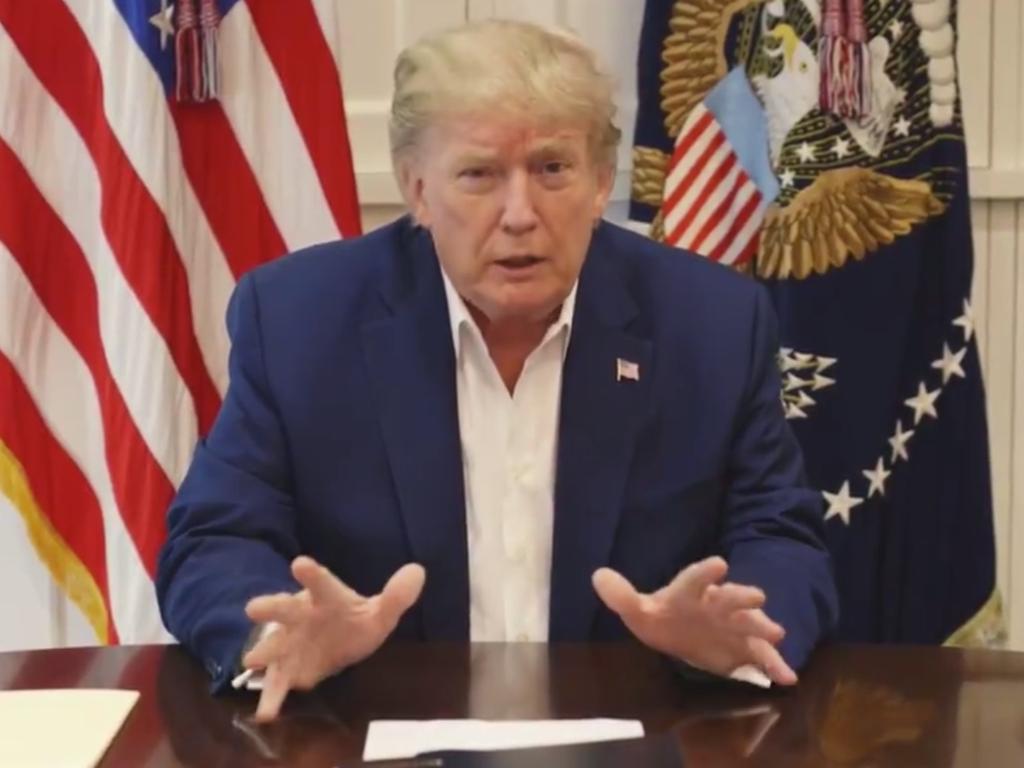Coronavirus: What’s he taking? Donald Trump's recovery depends on unproven drugs
Donald Trump says he has ‘learned a lot about Covid’ as he has battles the virus. But some of his treatments have raised concerns.

US President Donald Trump says he has “learned a lot about Covid” by “really going to school,” as he has battles the virus in hospital.
“This is the real school. This isn’t the ‘let’s read the books school,’ and I get it, and I understand it, and it’s a very interesting thing,” he said.
Here are some of the treatments he is being given:
Dexamethasone
Of all the drugs being given to President Trump, dexamethasone is by far the most ominous: it is usually reserved for people who are seriously ill.
A cheap, widely used steroid, it is the only drug proven to save the lives of COVID-19 patients. It is thought to work by calming the immune system, which goes into overdrive in some people and turns on their own vital organs.
The Recovery trial, which involved thousands of NHS patients, showed that for people on ventilators it reduced the risk of death. For patients on oxygen, it reduced the risk that they would die and that they would need invasive ventilation, in which a tube is placed into the airway and oxygen forced in.
It is not recommended for mild cases of COVID-19. In those NHS patients not receiving oxygen there was no benefit and there were signs it was harmful.
Regeneron
Mr Trump was also given a dose of a promising – but unproven – treatment known as a monoclonal antibody. Developed by Regeneron, a US biotech company, it contains laboratory-grown versions of the antibodies that a robust immune system will generate naturally to fight off the coronavirus. Think of it as a battalion of reinforcements.
The treatment is designed to stop the virus from infecting new cells and replicating. The hope is that monoclonal antibodies can stop COVID-19 from progressing to its most serious stage of pneumonia, acute respiratory failure and death.
“So far several hundred patients with relatively mild disease have been given the drug in so-called phase 2 studies,” Martin Landray, professor of medicine and epidemiology at Oxford University, said. “These have shown that the drug is effective in reducing viral load. But they have been too small to know whether they improve patient outcomes such as reducing the duration of hospital stay, reducing the need for mechanical ventilation or improving survival.”
Like Mr Trump, about 2,000 NHS hospital patients will be given the same single eight-gram dose as part of a large trial that should provide a definitive answer on whether it works. Those British patients will be quite seriously ill, at least having needed oxygen. The White House appeared to suggest yesterday (Sunday) that Mr Trump was in a significantly better state.
Being 74 years of age, male and obese, Mr Trump is in a high-risk bracket for COVID-19. Even so, some American experts questioned the decision to dose him with a cocktail of laboratory-grown antibodies that is still in clinical trials. “In my mind these antibodies are experimental,” Andre Kalil, an infectious disease specialist at the University of Nebraska Medical Center, told The New York Times. “I don’t know how safe they are for the president,” he added.
Remdesivir
An antiviral medicine that is also being given in NHS hospitals, Remdesivir has shown some signs of helping patients to recover more quickly but the jury is out on exactly how well it works. Roughly speaking it tries to sabotage the virus as it tries to make copies of itself.
Professor Derek Hill, of University College London, said: “This drug has recently had its emergency use authorisation [in the US] expanded to include more mild patients. So you can’t really infer anything about Trump’s severity of symptoms by him being on Remdesivir.”
The drug was developed to treat hepatitis C and tested against ebola but with disappointing results. Generally antiviral drugs are tricky to make because viruses replicate by hijacking the machinery of our cells. A drug that clogs up that machinery might destroy the virus but there is a good chance that it will harm the human host as well.
— Donald J. Trump (@realDonaldTrump) October 4, 2020
The Times







To join the conversation, please log in. Don't have an account? Register
Join the conversation, you are commenting as Logout